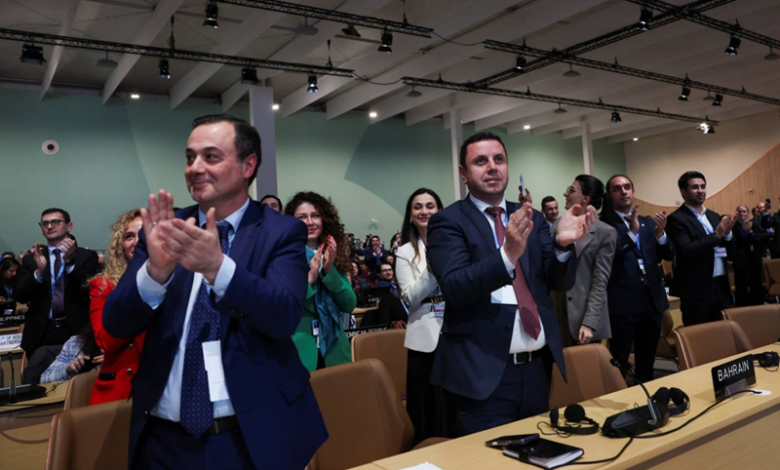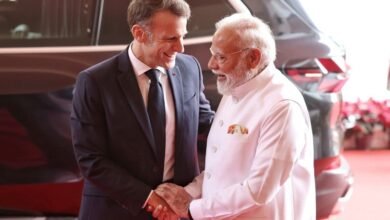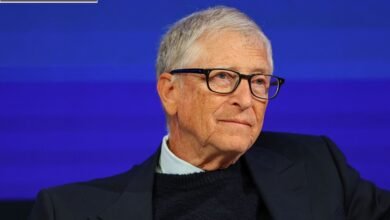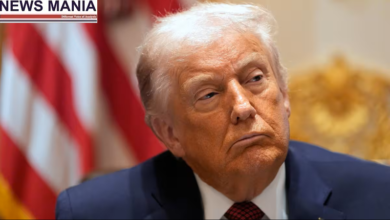The $300 billion COP29 climate pact is criticized by developing countries as being insufficient.

At Sunday’s COP29 summit in Baku, countries agreed to a $300 billion annual global financing target to help poorer countries deal with the effects of climate change. However, the treaty’s intended recipients criticized it as being woefully inadequate. The deal, which was negotiated in overtime at the two-week summit in the capital of Azerbaijan, was intended to give worldwide efforts to slow global warming a boost in what would be the warmest year on record. In the plenary hall of COP29, a few delegates stood up for the agreement. Others criticized the host nation of Azerbaijan for hastily passing the controversial plan and chastised wealthy countries for not doing more.
“I regret to say that this document is nothing more than an optical illusion,” Indian delegation representative Chandni Raina told the closing session of the summit, minutes after the deal was gavelled in. “This, in our opinion, will not address the enormity of the challenge we all face. Therefore, we oppose the adoption of this document.”
United Nations climate chief Simon Stiell acknowledged the difficult negotiations that led to the agreement but hailed the outcome as an insurance policy for humanity against global warming. “It has been a difficult journey, but we’ve delivered a deal,” Stiell said. “This deal will keep the clean energy boom growing and protect billions of lives.”But like any insurance policy, it only works if the premiums are paid in full, and on time.”
Rich nations had previously committed to providing $100 billion yearly in climate finance by 2020; the pact would increase that amount to $300 billion annually by 2035. That previous objective ends in 2025 and was achieved two years later, in 2022. The agreement also establishes the framework for the climate summit that will take place in Brazil’s Amazon rainforest next year, when nations will chart out the following ten years of climate action. The conference went straight to the core of the controversy surrounding the financial obligation of developed nations, whose long-standing reliance on fossil fuels has resulted in the majority of greenhouse gas emissions, to make up for the increasing harm caused by climate change.
Negotiations had been due to finish on Friday but ran into overtime as representatives from nearly 200 countries struggled to reach consensus. Talks were interrupted on Saturday as some developing countries and island nations walked away in frustration “We are leaving with a small portion of the funding climate-vulnerable countries urgently need. It isn’t nearly enough, but it’s a start,” said Tina Stege, Marshall Islands climate envoy.
Nations have been seeking financing to deliver on the Paris Agreement goal of limiting global temperature rise to 1.5 degrees Celsius (2.7 degrees Fahrenheit) above pre-industrial levels – beyond which catastrophic climate impacts could occur. The world is currently on track for as much as 3.1 C (5.6 F) of warming by the end of this century, according to the 2024 U.N. Emissions Gap report, with global greenhouse gas emissions and fossil fuels use continuing to rise.
The agreement reached on Sunday did not specify specific actions that nations will take to fulfill the commitment made at the U.N. climate summit last year to phase out fossil fuels and triple the capacity of renewable energy sources this decade. Saudi Arabia allegedly tried to thwart such a strategy during the negotiations, according to several negotiators. According to U.S. climate adviser John Podesta, “getting greater ambition when you’re negotiating with the Saudis is definitely a challenge.” A Saudi official refrained from commenting right away.
About two dozen industrialized nations, including the United States, Europe, and Canada, are on the list of states that must contribute. This list was established during the 1992 U.N. climate discussions.
European nations have called on oil-rich Gulf states and China, the second-largest economy in the world, to contribute. While it does not mandate it, the agreement encourages poorer nations to contribute. According to economists, the agreement’s overarching objective of raising $1.3 trillion in climate finance year by 2035—which would come from all public and private sources—is equivalent to the amount required to combat global warming.
From the beginning, it was difficult to secure the climate finance arrangement.
Some negotiators are skeptical that the greatest economy in the world will contribute to whatever climate financing target reached in Baku, given Donald Trump’s victory in this month’s U.S. presidential election. Trump, a Republican who will take office in January, has declared climate change to be a hoax and pledged to withdraw the United States from global climate cooperation once more. Although he stated more work was needed, President Joe Biden commended the participants in COP29 for striking what he called a historic agreement that would help mobilize needed money.






